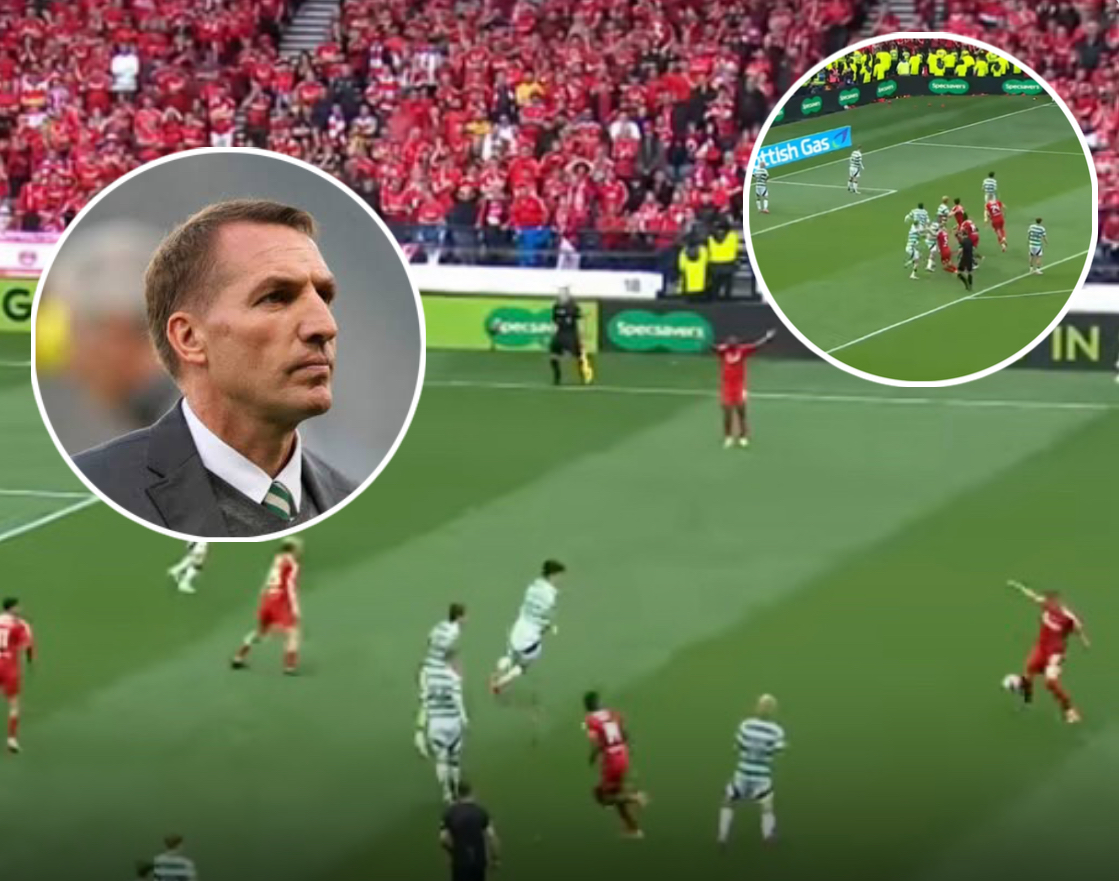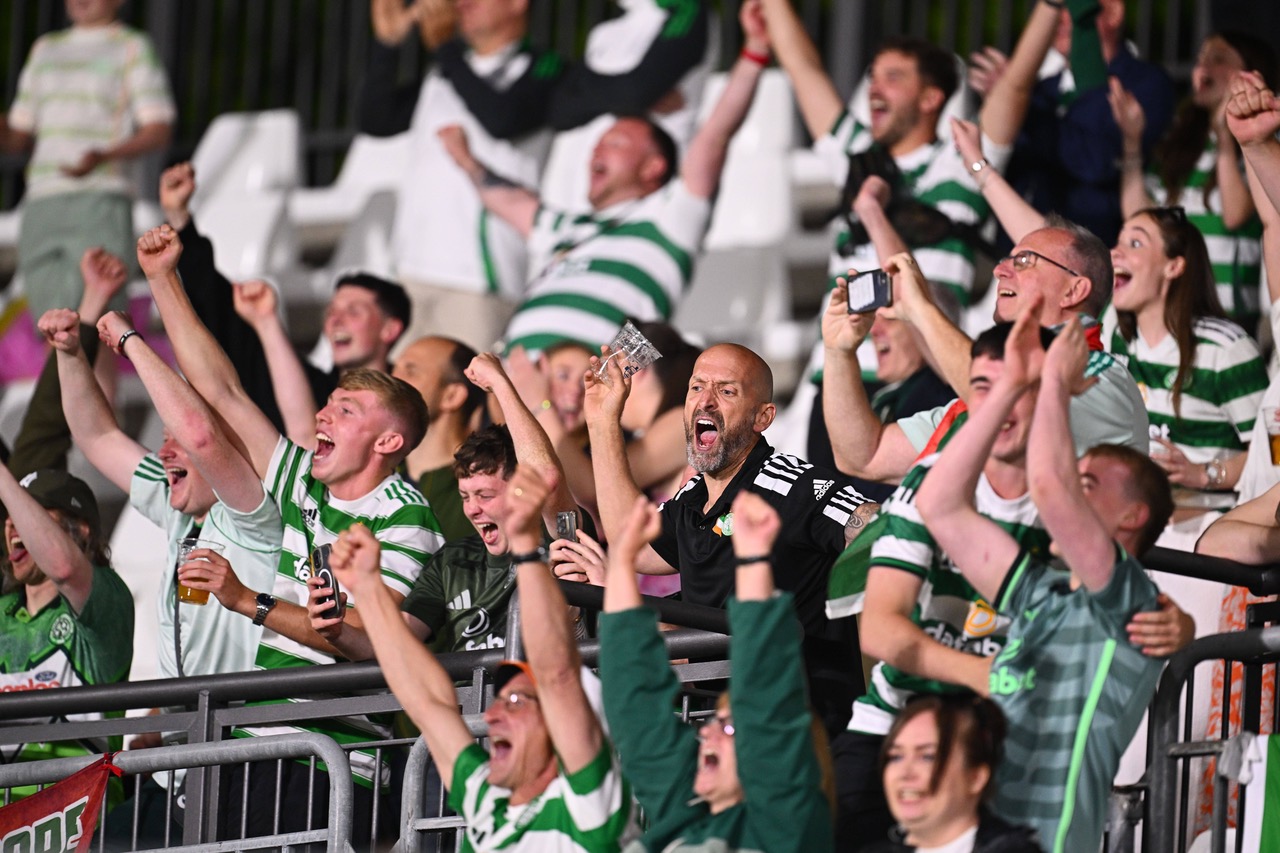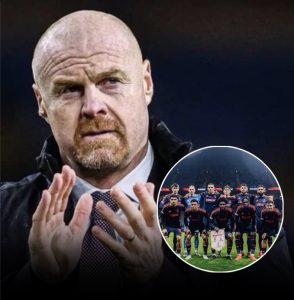CELTIC FANS DEMAND FOUR PLAYERS ARE SOLD IMMEDIATELY AFTER LOSING FA CUP FINAL VS ABERDEEN FC
Views: 8
In a dramatic culmination to the 2024–25 Scottish football season, Celtic Football Club’s aspirations for a historic ninth domestic treble were dashed by Aberdeen FC in a tense Scottish Cup final at Hampden Park on May 24, 2025. The match concluded with a 1–1 draw, leading to a penalty shootout where Aberdeen emerged victorious 4–3, securing their first Scottish Cup triumph in 35 years. This unexpected defeat has ignited a fervent response from the Celtic fanbase, with widespread calls for a significant overhaul of the squad, including the immediate sale of four underperforming players.
The Match: A Tale of Missed Opportunities and Costly Errors
The final was a tightly contested affair, with both teams displaying resilience and determination. Celtic took the lead in the first half due to an own goal by Aberdeen’s Alfie Dorrington. However, a critical error by Celtic’s veteran goalkeeper, Kasper Schmeichel, in the 83rd minute allowed Aberdeen to equalize, pushing the match into extra time and eventually penalties. Schmeichel’s misjudgment of a cross led to a goal that many fans and analysts deemed preventable. In the ensuing penalty shootout, Schmeichel failed to save any of Aberdeen’s attempts, while Celtic’s Callum McGregor and Alistair Johnston missed their shots, sealing the team’s fate.
Fan Backlash: Demands for Immediate Action
The aftermath of the defeat saw an outpouring of frustration from the Celtic faithful. Social media platforms and fan forums were inundated with calls for a comprehensive squad overhaul. The primary targets of criticism included:
- Kasper Schmeichel: The 38-year-old goalkeeper’s performance was heavily scrutinized, with fans attributing the equalizing goal to his error and questioning his overall reliability.
- Alistair Johnston: The defender’s missed penalty and perceived lackluster performance throughout the match led to calls for his departure.
- Daizen Maeda: Despite his contributions during the season, Maeda’s missed opportunities in the final, including a notable chance in extra time, have led fans to question his effectiveness in crucial matches.
- Callum McGregor: As team captain, McGregor’s missed penalty was seen as a significant letdown, prompting discussions about his leadership and future role in the squad.
These players have been singled out by fans as symbols of the team’s shortcomings in high-stakes situations, with many advocating for their immediate sale to facilitate a new era for the club.
Managerial Decisions Under Scrutiny
Brendan Rodgers, in his second stint as Celtic manager, has not been immune to criticism. Fans have expressed dissatisfaction with his tactical choices and substitutions during the final, suggesting that his decisions may have contributed to the team’s inability to secure victory. Some supporters have even called for Rodgers’ resignation, indicating a loss of confidence in his leadership.
Historical Context and the Weight of Expectations
Celtic’s pursuit of a ninth domestic treble was not just a testament to their dominance in Scottish football but also a potential extension of their world record for trebles. The loss to Aberdeen, a team that had not won the Scottish Cup since 1990, was a significant blow to the club’s ambitions and prestige. The defeat also highlighted underlying issues within the squad that had been masked by domestic success.
The Road Ahead: Rebuilding and Reflection
In the wake of the defeat, Celtic faces a pivotal offseason. The club must address the concerns of its supporters, reassess its squad composition, and make strategic decisions to restore confidence and competitiveness. Potential actions include:
- Transfer Market Activity: Identifying and acquiring players who can perform under pressure and contribute to the team’s long-term success.
- Leadership Evaluation: Assessing the effectiveness of current leadership, both on and off the pitch, to ensure alignment with the club’s goals.
- Youth Development: Investing in the development of young talent to build a sustainable and dynamic squad for the future.
The club’s response to this challenging period will be crucial in determining its trajectory in the coming seasons. By addressing the issues highlighted by the Scottish Cup final defeat, Celtic has the opportunity to emerge stronger and more resilient.
Conclusion
Celtic’s loss to Aberdeen in the Scottish Cup final has served as a catalyst for introspection and calls for significant change within the club. The passionate response from fans underscores the high expectations and deep emotional investment in the team’s success. As the club navigates this period of transition, decisive action and strategic planning will be essential to restore faith and achieve future triumphs.
The ad is displayed on the page
current post: CELTIC FANS DEMAND FOUR PLAYERS ARE SOLD IMMEDIATELY AFTER LOSING FA CUP FINAL VS ABERDEEN FC, ID: 33802
Ad: Ad created on January 29, 2026 1:51 pm (41069)
Placement: After Content (41064)
Display Conditions
| Ad | wp_the_query | |
|---|---|---|
| term_id | 0 | |
| taxonomy | 0 | |
| is_main_query | 1 | 1 |
| is_rest_api | 1 | |
| page | 0 | 1 |
| numpages | 0 | 1 |
| is_archive | 1 | |
| is_search | 1 | |
| is_home | 1 | |
| is_404 | 1 | |
| is_attachment | 1 | |
| is_singular | 1 | 1 |
| is_front_page | 1 | |
| is_feed | 1 |
| Ad | wp_the_query | |
|---|---|---|
| term_id | 0 | |
| taxonomy | 0 | |
| is_main_query | 1 | 1 |
| is_rest_api | 1 | |
| page | 0 | 1 |
| numpages | 0 | 1 |
| is_archive | 1 | |
| is_search | 1 | |
| is_home | 1 | |
| is_404 | 1 | |
| is_attachment | 1 | |
| is_singular | 1 | 1 |
| is_front_page | 1 | |
| is_feed | 1 |
Visitor Conditions
value: mobile, tablet, desktop
value: mobile, tablet, desktop
Find solutions in the manual









Post Comment